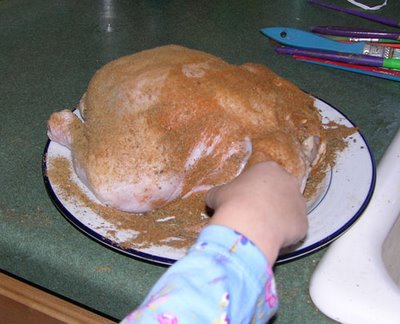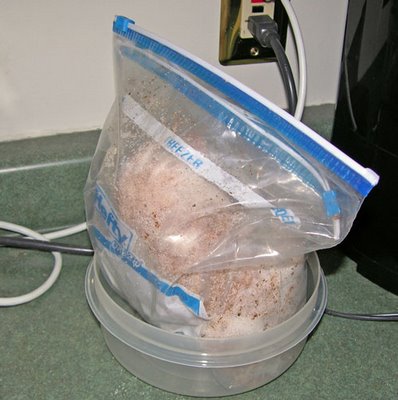
I have quite a science project on my kitchen counter--it's really creeping out my sister. We're mummifying a chicken! The first step is to wash and dry it very thoroughly, then cover it in spices. After that we filled the cavity with salt, and put it in a large ziploc bag filled with salt. The salt draws out the moisture.
 The instructions I'm using recommend changing the salt once a week, but the first week, the bag filled with moisture after a couple days, and so it got an extra salt change. Once a week, I am rinsing all the salt off and weighing the chicken (the instructions say to weigh it, and this is the only way I can see to get the old salt off). The results are in this spreadsheet. Then I dry it, add some more spices, refill the cavity with salt, and put in a new salt-filled bag.
The instructions I'm using recommend changing the salt once a week, but the first week, the bag filled with moisture after a couple days, and so it got an extra salt change. Once a week, I am rinsing all the salt off and weighing the chicken (the instructions say to weigh it, and this is the only way I can see to get the old salt off). The results are in this spreadsheet. Then I dry it, add some more spices, refill the cavity with salt, and put in a new salt-filled bag. I wasn't sure what to expect, but so far it doesn't stink-- it just smells mildly of the spices we used. Unfortunately, I seem to be more interested in this than the kids, but my oldest wants to keep doing it, as long as I do the dirty work, LOL!

